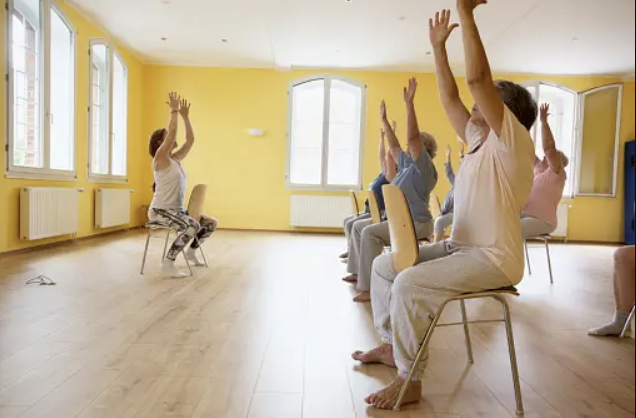5 Reasons Adaptive Chair Yoga Is For Everyone
There are many barriers that keep people from trying yoga. Some relate to health, physical challenges, and body image challenges. If you are new to yoga or looking to explore ways experience the practice, guest contributor Mary Higgs shares how Adaptive Chair Yoga not only breaks down barriers to yoga by making it more accessible, but it also focuses on the mind-body connection by encouraging practitioners to trust and listen to their bodies.
“You Look Healthy:” Why These Words Can Be So Hard to Hear
For so many of us in recovery, being “healthy” creates quite a conundrum. Although we commit to health and desire the benefits that come from being healthy, it can be painfully difficult to hear the words: “You look healthy.” Here I open up about the trouble I had with this word, and how I eventually learned to expand my definition of healthy from one rooted in eating disorder thinking to one that aligns with recovery values.
My Body is My Home: How Yoga Helped Me to Journey Inward
Meet guest contributor Evie Rose, who shares about making the brave, hard choice to leave university to seek help for an eating disorder and addiction. Evie describes how she’s integrated yoga into her recovery journey, and the many ways the practice has helped her feel again and move her body with intention and compassion. If you could use a little hope today that recovery is possible, give Evie’s post a read.
From Fragmented to Whole: A Body Image Journey
How would giving yourself permission to see yourself as part of the whole rather than a collection of imperfect parts change your relationship with your body? Somewhere along my body image journey, this was a question I began asking myself daily. Surprisingly, with time and support, I felt a shift, a sense of wholeness versus a fragmented mess of imperfect body parts. If you struggle with body image, this blog offers some guidance on how to practice “seeing” yourself as a whole being.
We Made Top 100 Eating Disorder Blogs!
Thanks to the dedication and support of all of our readers and guest contributors, the Yoga for Eating Disorders Blog has been ranked #30 out of the top 100 blogs about eating disorders by FeedSpot!
To Feel, Do, and Be Enough
In our struggle to feel, be, and do “enough,” we often measure our self-worth by external sources like social media or lifeless objects like a to-do list or the scale. I get it — that was part of my eating disorder journey too, which I open up about in this blog. I also share what helped me to claim my “enoughness.” If you are exhausted from the constant effort to do, feel, and be enough or are interested in taking some steps in that direction, this blog offers some concrete ideas you can take into your life.
My Body Is Safe. I Am Safe. I Am Home.
Guest contributor Carey Viejou shares about her eating disorder recovery journey and how practicing yoga and completing a yoga teacher training put her on the path to finding safety in her body. Carey also explains why the yoga philosophy of ahimsa (non-harming/kindness) has become a value she lives by in her recovery and life.
How Yoga Can Help Loosen Our Grip on Perfectionism
We live in a world that values perfection, and as a result many of us walk around attached to the belief that we are not good enough. Here, I open up about my oppressive relationship with perfectionism back in college. I share how the yoga philosophy of nonattachment helped me see the true pain that comes with trying to exist perfectly and how I used that concept to help me loosen my grip on perfectionism. If you are working on letting go of perfectionism or are interested in taking some steps in that direction, this blog offers some concrete steps you can take.
The Power of Everyday Wonder on Body Image
How might cultivating everyday wonder be helpful with alleviating body image distress? This is the question guest contributor Minh-Hai Alex, MS, RDN, RYT, explores in her latest blog post. Drawing on personal insights, research, and expertise from body image experts, Minh-Hai invites us to pay attention to how small doses of wonder —whether grand or small—in our everyday life impacts our relationship to our bodies.









